(Psst: The FTC wants me to remind you that this website contains affiliate links. That means if you make a purchase from a link you click on, I might receive a small commission. This does not increase the price you’ll pay for that item nor does it decrease the awesomeness of the item. ~ Daisy)
by the author of The Ultimate Guide to Frugal Living
When is the last time you sat down and took a very close look at your budget? And by close, I mean an accounting of every single dime you spend, including that drive-thru coffee and the paperback you bought that you could have borrowed from the library. There’s no reason you shouldn’t run your home like a business, and that includes keeping detailed financial records and the need to audit your personal budget.
Even the most dedicatedly thrifty people can get off track, particularly when times are good. You figure that you just got a big bonus check, so it’s not going to hurt to go out for ice cream. Then you go to the store and decide, you’ve got extra money, so maybe you’ll just buy whatever you want instead of adhering to your normal weekly budget. You decide to live a little, enjoy life, and the next thing you know, all of that extra money is gone and all you have left is a few extra pounds on your waistline or a new frivolous gadget.
Audit your personal budget to stay on track.
And you’re right, indulgences are absolutely fine from time to time, as long as they don’t take away from your necessities. But instead of working the treats into their frugal strategies, many people get completely off track when a bit of extra money comes their way. If you aren’t careful, indulgences can become habits that can undo your progress towards a frugal, debt-free lifestyle.
After moving and incurring some unexpected expenses, I had to sit down and take another look at my finances. My expenses have changed because I’m in a different house, so I had to take this into consideration and completely revamp my current budget. But it doesn’t take a move from the suburbs to a farm to change your expenses – many times, things start creeping up so incrementally we don’t even realize it’s happened.
It’s time to do a personal audit on your finances.
Figure out exactly where you are
How do you do most of your spending? If it’s with your debit card, it will be pretty easy to get started immediately. Simply print out your records for the last month, and then move on to the next step.
If you spend a mixture of money from your bank account and cash that you have on hand, you may have to get a notebook and start tracking your spending, then move on to the next step in a couple of weeks.
It’s vital to note every single dime you spend. Like a leaky faucet in a bathroom few people use, it’s those tiny but consistent drips that add up to an astonishing amount of gallons of waste.
Now, organize your spending into categories.
I use categories, then subcategories:
1.) Fixed Expenses:
These are expenses that don’t change from month to month, like: mortgage, rent, property taxes, cable bill, car payment, insurance.
You can then break these down into 2 subcategories.
- Necessities
- Optional expenses
Here are some ways to cut your fixed expenses.
2.) Variable Expenses:
These expenses can be adapted to fit your financial situation, and sometimes even eliminated if necessary (obviously the need for things like food can’t be eliminated, but you can spend more or less money when adjustments are needed): food, utilities, clothing, gasoline, entertainment.
Again, we can break these into subcategories based on how vital they are.
- Necessities
- Optional expenses
All of your spending will fall into these categories and subcategories.
Now please don’t misunderstand. There’s absolutely nothing wrong with a little bit of luxury spending that you’ve budgeted for so that it doesn’t put you behind on necessary spending. We get new clothes, take vacations, and go out to dinner from time to time – you just have to make sure the spending works within the confines of your budget.
Now, establish your minimum for living expenses.
For this calculation, add up your fixed necessities. This is the amount you need to keep a roof over your head, your car in the driveway, and any other regular payments that you make to keep those two things going.
Then add up your variable necessities. There’s some wiggle room here, because we can always dial back our groceries, the amount that we drive our vehicles, etc., but we have to add some of this in to our calculations.
So in a financial worst-case scenario, this is the minimum amount of money that you need to maintain some semblance of your current lifestyle. This amount needs to be set aside each month before another penny is spent Everything you have on top of this is gravy.
What can you cut without making much of a difference in your lifestyle?
Oftentimes you’ll immediately identify numerous ways you can reduce your spending without making any major changes whatsoever. Perhaps it’s something small like taking your coffee with you in the morning instead of going through the drive-thru at Starbucks. Maybe you can switch from cable to Netflix. Almost none of these will change the quality of your life in any substantial way, but they can add up to a great deal of money saved over the course of the year.
One mistake I often see when people are taking charge of their budgets is that they discount the small changes as not worthwhile. But really, I believe it’s the small changes that can make the biggest differences because with consistency they add up to a pretty big sum. Check out this article on small changes that result in big savings.
Not only that, but getting into the mindset of choosing the most frugal option can go a long way towards changing your life. When you can make a game from saving money, you learn to reduce waste, be more creative, and think outside of the “normal” parameters. When my oldest girl was a newborn and my husband lost his job, I stumbled upon The Tightwad Gazette books at the library. Amy Dacyczyn’s common sense approach to frugality was a life-changing lesson that has stuck with me through 20 years of the financial roller coaster of life. (If you haven’t read these books, I strongly recommend that you do – her series has been combined into one giant compendium of thrift that every person should have on the bookshelf.)
What could you cut if you needed to make a more dramatic reduction?
Looking at your list of necessities, this baseline amount is for maintaining your current lifestyle. But what if things REALLY fell apart? What if there simply wasn’t enough money to keep living the way you have been? When you audit your personal budget, you can get ahold of the situation early.
That’s when you have to rethink your necessities. And if you have a clear picture of your finances ahead of belt-tightening time, it’s going to be a lot easier to do this when times are tough.
Here are some cuts to consider:
- Move to a smaller house. Contrary to popular belief, no child ever died because he or she had to share a room with a sibling.
- Relocate to a small town. Is it worthwhile to commute to a job in the city from a smaller, less expensive location? This can give you the added opportunity of homesteading and providing for many of your own needs. Click HERE to read about what you need to know before making such a move.
- Get rid of your late model year vehicle. Look for a decent used vehicle that you can purchase with cash.
- Cut back to one vehicle or even no vehicles. Sometimes public transit and your own two feet can provide all of the transportation you really need at a fraction of the price of owning a vehicle. This varies by location.
- Stop using credit cards. This goes for any type of lending system that requires you to pay interest. Stop accumulating debt.
- Don’t eat out. Limit meals out to no more than once a month or special occasions. Even better, don’t eat out at all. Dining out, even at a fast food place, is at minimum 4 times more expensive than the same meal prepared from scratch at home. (And far less healthy!)
- Look for free or low-cost entertainment. Consider a family YMCA or community center membership instead of gymnastics clubs or private tennis lessons if you need to enroll your kids in some activities. Go hiking, have picnics, explore parks, go to the library, and find out what’s offered for free in your hometown. Learn to enjoy productive hobbies like canning, carving, and needlework. Switch from cable to Netflix.
- Use the envelope method to budget for shopping trips. For back-to-school shopping or Christmas shopping, decide how much you want to spend. Put that money in an envelope. As you shop, place each receipt in the envelope. When the money is gone, it’s gone. If there’s something else your child desperately wants, then they need to decide what item they’d like to take back to get it. Be firm and stick to your guns. This has the added benefit of teaching your children to budget.
- Reduce your monthly payments by cutting things like cable, cell phones, home phones, and/or gym memberships. Look at every single monthly payment that comes out of your bank account and slash relentlessly.
- Shop using the stockpile method. Shop only the sales and simply replenish your stockpile.
- Eat leftovers. Have you ever stopped to think about how much food you throw out every month? You can often provide a few “freebies” every month by carefully repurposing your leftovers.
- Stay home. By spending more time at home, you will spend less money. You won’t be grabbing a bottle of water, going through drive-thru for lunch or putting fuel in the car. Learn to treasure you time at home with loved ones – it’s worth more than money.
Of course, this isn’t a comprehensive list – when you look at your personal expenditures, other ideas will present themselves.
It turns out, money actually CAN buy happiness.
Being frugal doesn’t have to be a sentence to a grim reality. When you relieve the financial pressure, you’ll be amazed at how much brighter your outlook becomes. When you “need” less, you will be happy with the simple things. The peace that comes from financial security can’t be matched by any number of expensive herbal calming teas, pricey gym memberships, tropical beach vacations, or meditation classes.
Money actually can buy happiness (well, peace of mind, anyway) – but it’s the money you DON’T spend that buys it.
Do you audit your personal budget?
Do you audit your personal budget? How often do you check to make sure you’re staying on track? Do you rethink your budget when changes occur? Share your thoughts in the comments.
About Daisy
Daisy Luther is a coffee-swigging, adventure-seeking, globe-trotting blogger. She is the founder and publisher of three websites. 1) The Organic Prepper, which is about current events, preparedness, self-reliance, and the pursuit of liberty; 2) The Frugalite, a website with thrifty tips and solutions to help people get a handle on their personal finances without feeling deprived; and 3) PreppersDailyNews.com, an aggregate site where you can find links to all the most important news for those who wish to be prepared. Her work is widely republished across alternative media and she has appeared in many interviews.
Daisy is the best-selling author of 5 traditionally published books, 12 self-published books, and runs a small digital publishing company with PDF guides, printables, and courses at SelfRelianceand Survival.com You can find her on Facebook, Pinterest, Gab, MeWe, Parler, Instagram, and Twitter.
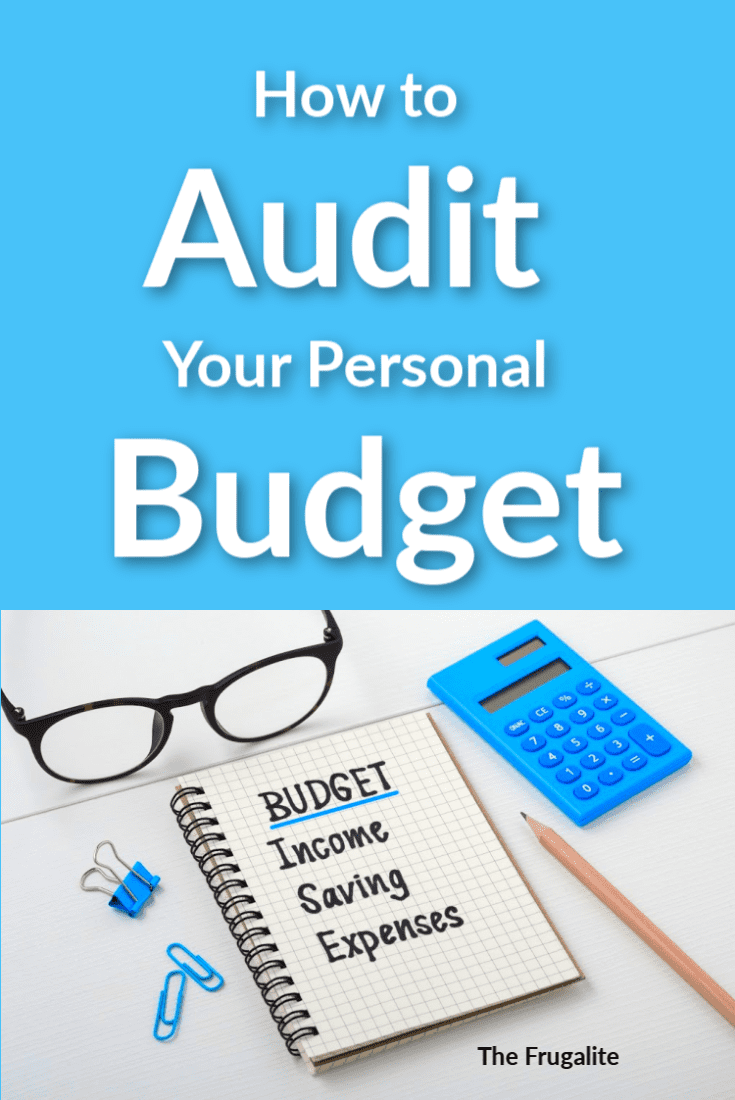

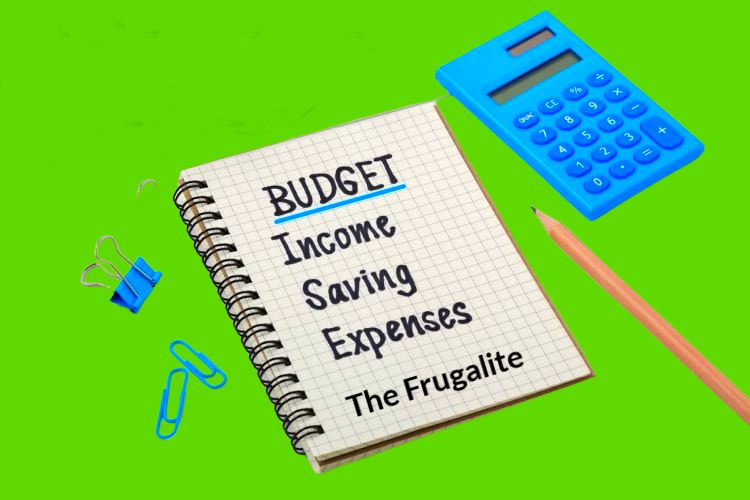




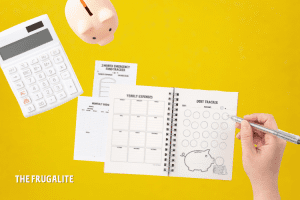

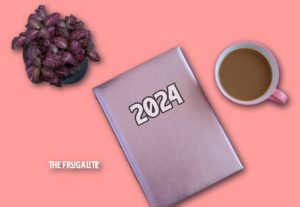
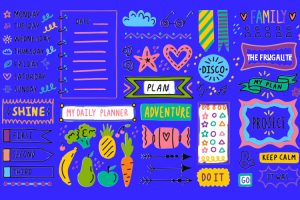

7 thoughts on “How, When, and Why to Audit Your Personal Budget”
Thanks for this article and for most of your other useful publications.
Usually not an “official” audit. But by knowing the amount of money required for necessities is imperative for building an emergency fund. Some may be able to save 3-6 months of expenses (more like 8-12 months in my mind these days), others may not.
I dislike the word budget. All money is intended to be “spent” – just a matter of on what and when. Technically you “spend” money from your paycheck for savings and retirement – money to be spent later.
Another good habit (IMHO) is having a list of appliances, mechanics, and maintenance (roof, windows etc., brakes, oil changes etc.). Finding the average life span and cost of a stove, furnace, roof etc. is not hard. Again, you might not be able to save all that you need but perhaps enough to pay for a certain percentage. OR take advantage of a good deal before necessity makes a poor bargain as the saying goes.
I replentish the stored food as sales and community pantry free food allow. I eat as seasonal as possible. Last nights dinner was stirfry. 20 minutes to cook some rice while I cooked 4 oz thin sliced beef, 1/2 onion diced, 1 tiny sweet pepper small diced, 5 sugar pod peas, 7 green beans, some garlic powder, salt, black pepper, and soysauce. Mixed into hot rice and split it between 2 bowls. Lime slices in cold tap water. 5 big limes were $.99 on the discount produce rack. We either eat or can Ieftovers. Leftover soup with fresh baked bread is another favorite.
Food is an easy pIace to save money. Yes there are usually other places to save money but often you are locked into a TV or phone contrct.
My daughter makes more than twice as much as my husband and I put together and yet she is still borrowing money from us! She’s giving $120 dollars per week to the bank for overdraft charges!
I personally have started writing articles on how to save money too! Now is not the time to be wasteful in expenses. Maybe someone else will listen to my advice!
Maybe my daughter will read your article! You have done well in your argument!
My biggest expense is gasoline. I use it for generators and vehicles. Just to check mail is a five mile drive one way. To get gas is 25 miles one way. The nearest decent grocery store is about 100 miles away. My corner cutting is we have no TV or cable. We do have internet. Our phone is a monthly flip phone not a smart phone. We have just one. We use it for when one of us is on the road (no cell reception on our property). Our other phone is VIOP. We only pay for the minutes we use. Our cars have liability on them except for my packard which has la little bit more insurance. All our cars are old (20 plus years). Our water well is on solar. When the sun is out it pumps. We are off grid. We don’t buy fancy cloths. Movie night is we buy a DVD once in a blue moon and watch it together on our computer. My other form of entertainment is reading books or weaving. Right now I have no debt, but due to the drought, we are needing a new well. My current well is down 700 feet. The cost these days just to drill a well is running $40 a foot, but does not include the pump or pipe. We are putting as much away as possible to keep from taking a big loan. We already have the extra solar panels. By choice I don’t have a credit or debit card. My husband has a debit card, but also a lowes and tractor supply card. They are paid off in full each payday. The only reason for those two credit cards is for the 5% discounts. Our house is slowly (very slowly) being built while we live in it as we can afford it. We have no mortgage or land payments. We are both retired and choose to live within our means. We use to live just under our means, but that is getting harder each day. We do have a spreadsheet that keeps track of everything we spend. Even a cup of coffee or candy bar is put under dining out.
I do noy budget per se.
I have written down my fixed expenses and that’s about it. What I do is withdraw $120 a week and that is my gas, grocery, and incidental money. When I run out, I am done spending. Most of the time I have a lot left over and that goes into savings or my “stash” as I like to call it. Yes, I do keep cash in the house in case of an emergency or a bank closing. My system is simple. No spreadsheets or complicated fussiness.
Some miscellaneous ideas
It’s often possible to negotiate annual property taxes down a bit whether or not if they are paid on a quarterly basis. The OwnWell company has been running ads this year about doing this for property owners … with an average annual savings around a thousand per year. If no savings are possible … it doesn’t cost the property tax payer anything for https://www.ownwell.com/ to look into the matter for them.
As the financial returns on US college educations have declined (while the costs have sky-rocketed) some families have looked into trade school training instead. Much less time and much less cost. Some have even used overseas schools.
Having a savings account at one’s local bank or credit union is becoming an increasingly dismal way to transfer that money’s purchasing power over to government and Federal Reserve counterfeiters — in addition to the published taxation rates people must pay. In 1913 when the centuries old death penalty for counterfeiting by private individuals was made impossible to hold government and central banks accountable for that same crime … the process of irresponsible money printing began. The result was a gradual forced increase in prices of nearly everything while the dollar lost its value proportionately. One historical example to make the point is a pre-1900 hotel sign archived in a Fort Worth museum that advertised 15¢ for fresh bath water or 5¢ for “used” bath water. A more recent example was the nickel candy bar of the 1950s with that printed price. Today a bar code has replaced that ancient printed price system so stores can charge $2 to $3 or so as the money becomes more and more worthless. I’m hearing that in the last two years alone some 80% of all US dollars in existence now have been created (counterfeited) in that incredibly brief time.
That’s why a bank or credit union account today is a terrible place to store one’s purchasing power (while getting perhaps 1-2% interest) as the counterfeiting criminals in Washington, DC steal its purchasing power at enormously higher rates. Yes, there are some bills where cash or equivalents are useful … but whenever possible one can save purchasing power wonderfully via GlintPay.com (where the gold bullion you buy is stored in a Swiss vault) and which you can access via an international Mastercard as needed — while the value of your gold bullion continues to rise — out of reach of US government’s ability to confiscate (as FDR did in 1933). Conveniently that UK-based GlintPay company has a support office for Americans in Colorado.
The point is that you can no longer judge the value of your US dollars by the printed value on them. Instead you have to track how their purchasing power is being looted by government and the central banks — so you must track the real value of your holdings via true purchasing power instead.
–Lewis